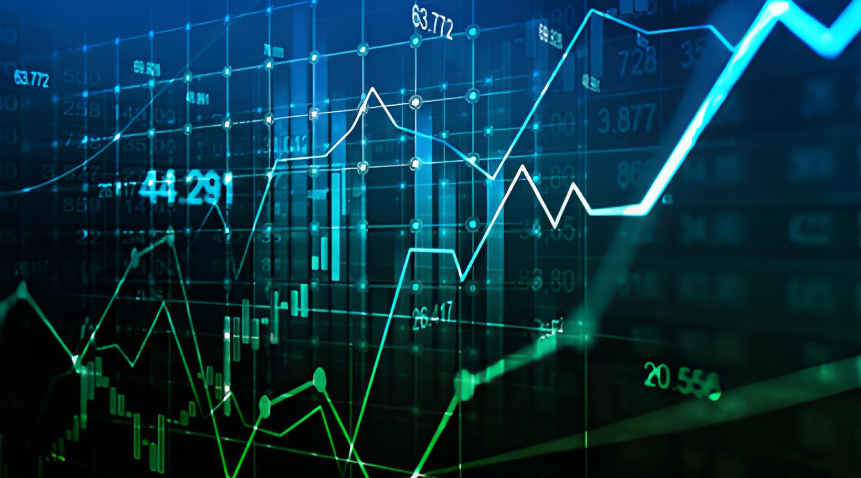Recently, a prominent figure in the U.S. Treasury, Bessent, made a notable public statement suggesting that the notion of re-evaluating the value of the U.S. gold reserves was not at the forefront of his thoughts. This remark, rather than inciting further speculation, acted as a calming influence in financial markets that had been stirred by previous conjectures surrounding the topic. It offered insight not only into the official stance on this sensitive discussion but also implied a complex consideration by American economic policymakers regarding the role of gold in the global monetary system.
Since 1973, the value of the United States' gold reserves has been calculated at a historical price of $42 per ounce, a standard that had effectively served as a constant benchmark for measuring national wealth. However, with the profound shifts in the global economic landscape, particularly the significant fluctuations in gold prices in recent years, there has been a growing tendency to reassess the value of gold as a safe-haven asset and its importance to national economic security. Fueled by these changes, a quiet yet persistent discussion about the potential re-evaluation of gold reserves has emerged, as many analysts argue that adjusting this value to align with current market prices could provide a more accurate reflection of America's asset status and potentially have far-reaching implications for the valuation of the dollar, the international financial market, and even the global economic structure at large.

Bessent's remarks undeniably poured cold water on this rising tide of discussion. Despite their brevity, his words carried several layers of meaning: first, the administration might not be in a hurry to intervene in the market by re-evaluating the value of gold reserves, favoring instead the maintenance of the current status quo; second, the decision behind such a re-evaluation could be shrouded in complex political and economic considerations, including the preservation of the dollar's international standing and the avoidance of excessive market volatility; and third, even with widespread curiosity and anticipation from the market regarding the issue, practical implementation would likely face numerous challenges and uncertainties on both technical and policy levels.
In fact, Bessent's comments are not isolated incidents. Prior to this, speculation about whether high-ranking economic advisers within the government were seriously considering a re-evaluation of gold reserves had already begun to circulate in the market. These speculations contributed to a brief spike in gold prices, indicating the market's sensitivity and eagerness concerning this potential policy change. However, as more information emerged—particularly last week’s reports suggesting that these high-level advisers had not included the idea in their formal agendas—the market sentiment gradually returned to a more rational state, and gold prices retracted accordingly.
As of 1:46 PM London time, spot gold had risen by 0.2 percent, reaching $2,937.94 per ounce. While this figure was not as high as the peaks driven by speculation earlier, it remained elevated, underscoring persistent market demand for gold as a safe-haven asset. In parallel, the Bloomberg U.S. Dollar Spot Index fell by 0.3 percent, further confirming market concerns regarding the future trajectory of the dollar and the appeal of gold as an alternative asset.
Additionally, this situation has sparked interest in the broader trends within the precious metals market. Prices for other precious metals, such as silver, palladium, and platinum, are also showing varied upward trajectories, indicating that investors are seeking to diversify their asset allocation and mitigate risks. These precious metals not only share similar safety attributes with gold but also play irreplaceable roles in their respective industrial applications, making their price movements closely tied to the global economic condition and industrial demand.
Returning to the issue of gold reserve value re-evaluation, while significant policy actions may not be immediately visible, the very discussion has undeniably prompted a rethinking in the market regarding the role of gold within the global monetary framework. As globalization deepens and geopolitical uncertainties increase, the value of gold as a safe-haven asset is likely to become ever more pronounced. Going forward, whether it is the U.S. government or other nations, the challenge will be to balance their gold reserves with monetary policy effectively while finding the optimal point between maintaining financial stability and fostering economic growth—a compelling test of policymakers’ acumen.
Moreover, for ordinary investors, this incident provides a valuable lens through which to observe global economic dynamics and understand the logic of financial markets. In an environment characterized by information asymmetry and heightened market volatility, it is crucial to maintain a calm mind, perform rational analysis, and hone market insights. Investors should remain vigilant, closely monitoring global economic policy directions, geopolitical developments, and movements within the precious metals market. Coupled with their risk tolerance and investment objectives, this awareness is pivotal for making sound and reasonable investment decisions.
In conclusion, while Bessent's comments on the re-evaluation of gold reserves may seem straightforward, they are underpinned by intricate political-economic logic and psychological dynamics in the market. This event not only underscores the significance of gold as a safe-haven asset in today's global economic climate, but it also serves as a reminder of the importance of adopting a rational, cautious, and forward-thinking investment attitude in the rapidly evolving world of finance.